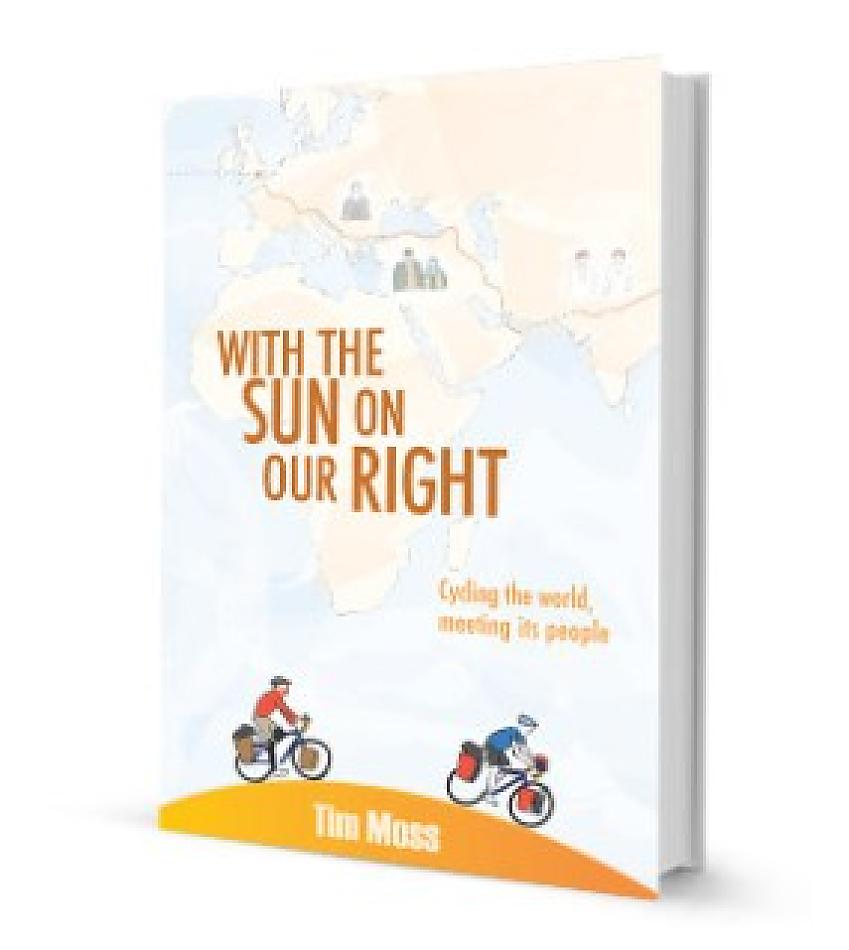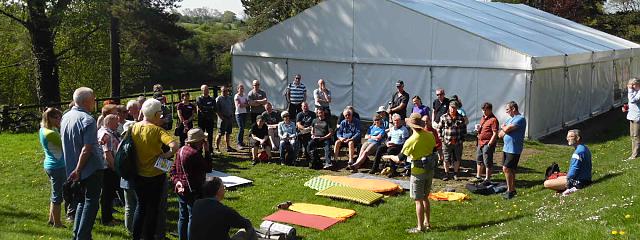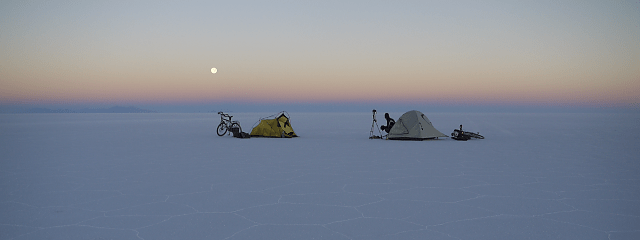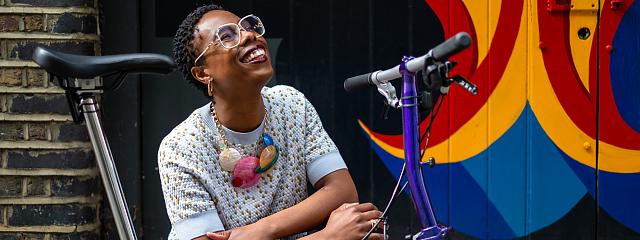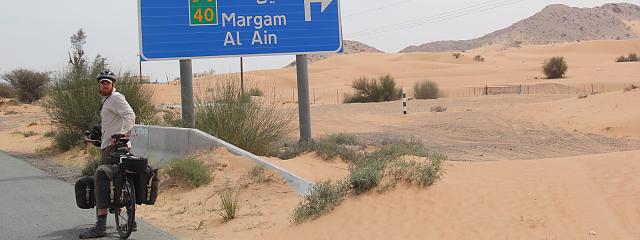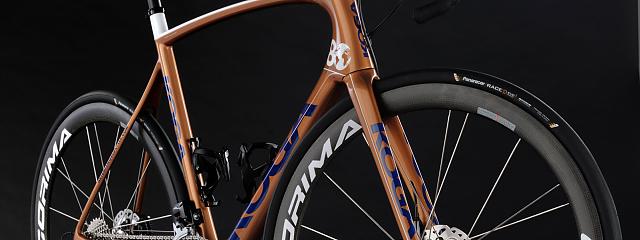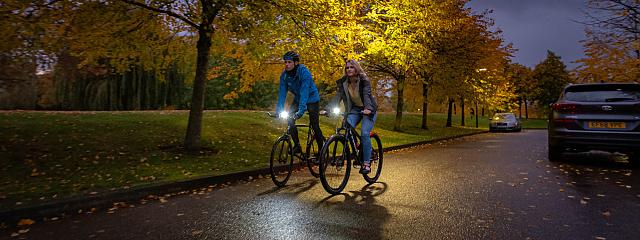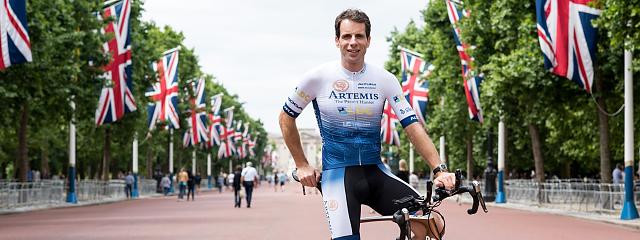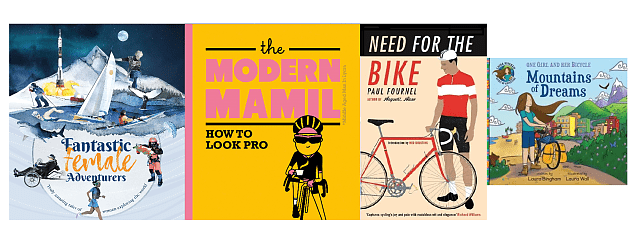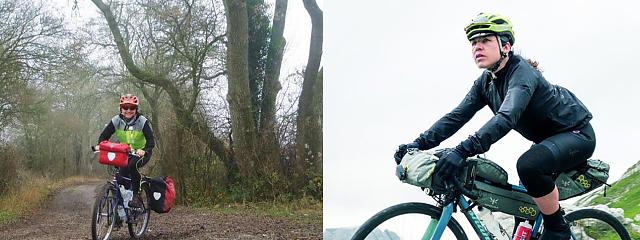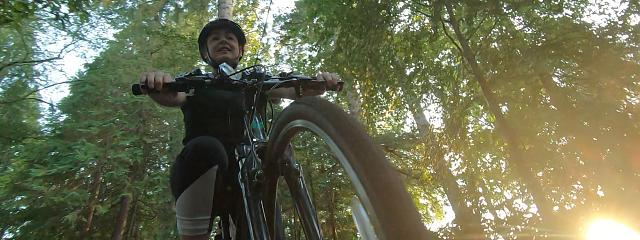
Cycling through depression and round the world - an excerpt from Tim Moss's book
Cycling through depression and round the world - an excerpt from Tim Moss's book
As part of our preparation, we decided to cycle from Land’s End to John O’Groats. We had done several cycle tours before but thought that we should see how it felt to go away, knowing that the experience might be extended for a year or more. On the second day, however, Laura looked over her shoulder to see me pushing my bike uphill. She was perplexed. I had never needed to get off and push before.
‘You alright, love?’ she asked.
‘I just don’t seem to have the energy.’
This was odd because I rode my bike all the time and had recently set the Guinness World Record for the longest distance cycled on a rickshaw. That had involved pedalling a huge, iron tricycle 1,000 miles from Scotland to London. As such, cycling up a hill, even a Cornish one, should have been fine.
When evening came, for some unknown reason, I could not face camping. Normally, I viewed camping as an opportunity, not a hardship. I loved nothing more than sleeping on top of a hill, beneath the stars, but that night, I could not bring myself to do it. I was almost scared of it and Laura eventually had to find us a hotel.
We started on our bikes again the following day, but when we reached a town, I told Laura that I could not cycle any further and needed to sit down. She went off to get me some food (knowing that hunger was often the source of my problems), and by the time she got back, I was sitting on the floor with my head in my hands, crying.
I prided myself on never giving up. I was constantly looking for challenges and always driving myself harder. In Oman, for example, I used to ride a loop of the local oil compound every morning before breakfast and cycled so hard that when I slumped over my bike after achieving a personal best, passers-by would stop and ask if I was OK. But that had started to feel futile. What was the point of riding my bike in circles, just to beat my own time? And what was the point of riding a bike across Cornwall? Why bother riding a bike at all?
Those feelings had been building for several months. Years of working at home, on my own, had been taking a toll. I often had no human interaction for days at a time and I had not been making a lot of money either, which, combined with the recent loss of a key client, ate away at my self-esteem.
These issues all came to a head in Cornwall, and the only response I could muster was to sit on the floor, crying.
‘What’s wrong, love?’ Laura asked when she came back from the shop.
‘I don’t know,’ I replied, ‘but I need to go home.’
The doctor told me that I had depression. I was expecting that but pressed him on what was physically wrong with me.
‘OK, but why am I so tired all the time? Why can’t I run or cycle anymore?’
‘You don’t understand,’ he said. ‘That’s the depression too.’
I tried to pretend that this would not affect our plan to cycle around the world.
‘I’ll be alright once we get going,’ I said.
For years, I had been looking forward to this trip. I was not willing to accept that this was an illness that would prohibit me from disappearing on my bike for a year. I just convinced myself that everything was still on track for our departure.
But the evidence was in front of me. As well as having no will to exercise, I became scared of social interactions. I would dwell on the slightest negative comments for days and, eventually, just avoided talking to people. It got to the point where I felt the need to physically hide. Laura came into our bedroom one day to find me curled up in a ball behind our bed, with my eyes clamped shut and my fingers rammed into my ears. I felt completely overwhelmed and needed to shut the world away.
This odd defence mechanism grew into a habit. It became so normal that I even hid behind the bed when my parents came to visit, and sometimes Laura would have to bring my dinner to eat on the floor, curled up in the corner of our bedroom.
A year earlier, I had crossed a desert, run an ultramarathon and broken a world record. Now I was reduced to hiding under beds and crying in supermarkets.
Tim Moss
As well as the hiding, I would break down during routine activities, like going to a supermarket, where the abundance of choice overwhelmed me. On one occasion, I became so stressed-out during a train journey that I buried my head into my chair and put my fingers in my ears until Laura told me we had reached our destination. A doctor prescribed me a sedative after that, which Laura then carried with us for emergencies. A year earlier, I had crossed a desert, run an ultramarathon and broken a world record. Now I was reduced to hiding under beds and crying in supermarkets.
Still, I could not let myself believe that anything would get in the way of our big trip. It was the one thing that I was holding on to and I was not yet ready to let it go. I insisted that I would be fine, and we pressed ahead with planning our ride around the world. But when Laura tried to hand in her notice at work, she was crying so much that her boss suggested she take a little longer to think about it. She knew that I was not in a fit state to go travelling and, slowly, she helped me realise that myself.
So, we shelved our plans while I got help: drugs, group therapy, self-help books, mindfulness training, counselling, more drugs and, finally, CBT. As my health improved, I started applying for jobs and was accepted onto a teacher-training programme. The routine and regular human contact helped dragged me back to my normal self again. A year after our ill-fated first attempt, we returned to Cornwall on our bikes and aimed for Scotland. There were no breakdowns this time. And, crucially, we were disappointed when the trip came to an end because we wanted to carry on. I was back on track and so were our plans.
This is an excerpt from The Sun On Our Right by Tim Moss.
The Sun On Our Right
Tim and Laura met a fascinating array of people and were repeatedly overwhelmed by the hospitality they received. From Turkey to Thailand and Oman to Japan, complete strangers invited these two grubby cyclists into their homes at the drop of a hat, offering the pair a unique and privileged insight into the lives of people from all walks of life.
Follow Tim and Laura around the world as they meet a gun toting sheriff on the Mexican border, a Taksim Square protester who makes a mean kebab and the Albanians who say yes when they really mean no. Join them as they stay with Buddhist monks, Georgian nuns, Turkish imams and Southern Baptists. And come along for the ride as they see behind the sanctions in Iran, hear about life after Hurricane Rita and experience hospitality even in the wake of violence and despair.
In a world filled with negative headlines and countries turning in on themselves, this life affirming story is a timely reminder of the common humanity that links people the world over.
More information: The book is published by Tim Moss and is available through his website






